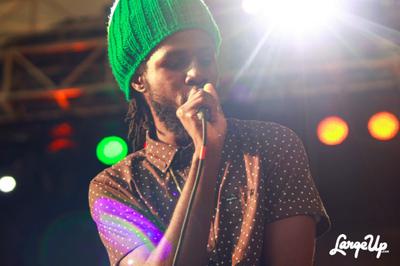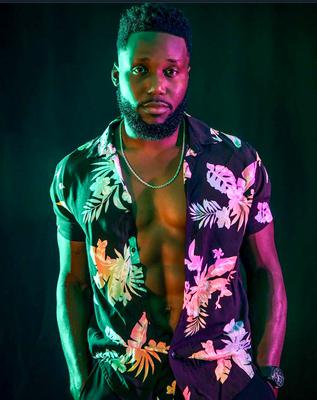Want to get your music out to over 40k radio and sound system dis? CLICK HERE
Stay up-to-date with all that's new at Dancehallreggaeworld, Click Here to subscribe for my updates and don't miss a thing!
Jamaica moving to reclaim global dominance in reggae
For decades, the sound of Jamaica has been reggae, the infectious, uniquely syncopated music that transformed the small Caribbean island into a cultural powerhouse.
But the genre's success has taken it far beyond its roots, and now many
in Jamaica worry that reggae-lovers abroad are forgetting the motherland
where it was born.
"Reggae was given to the world by Jamaica so
nobody can or ever should discourage anyone overseas from making this
music. But we think there should be acknowledgment that reggae was
created in Jamaica," said Michael "Ibo" Cooper, a musician who is
chairman of the Jamaica Reggae Industry Association.
Around the
world, music festivals celebrating the sounds made famous by reggae
patron saint Bob Marley and followers who developed the faster, brasher
derivative of dancehall are more likely to be headlined by bands from
places like California or France than by native-born Jamaicans. Aside
from albums by the late Marley or his progeny, few of the top-selling
reggae CDs or downloads come from Jamaican artists.
To get a
stronger foothold in the information age, Jamaican officials and reggae
industry insiders are brainstorming ways to better capitalize on
Jamaica's exuberant music culture and help protect what some claim is
local intellectual property. After years of only piecemeal support, the
government increasingly is viewing reggae and other cultural enterprises
as a hoped-for economic engine on the island.
Officials are
hashing over the creation of a certification mark to designate
"authentic reggae" — a sort of "Good Housekeeping Seal" — to encourage
the use of Jamaican musicians, producers and merchandise. They also hope
to defend Jamaican reggae by having the U.N.'s culture organization add
it to a global list of "intangible cultural heritage " such as
Argentina's tango and China's Peking opera. The Paris-based agency says
the island's government has yet to apply for inclusion on the list of
more than 280 cultural traditions.
Rob Bowman, a music professor
from Canada's York University who has researched intellectual property
and Jamaican music, said that while population numbers mean reggae's
biggest markets always will be overseas there's no reason why more
revenue streams from foreign commerce shouldn't flow back to Jamaica.
"With few exceptions, these styles of music cannot be authentically
replicated by non-Jamaicans. As such, these styles of music represent
intellectual property that is, for all intents and purposes, already a
part of Jamaica's branding," Bowman asserts in a World Intellectual
Property Organization consultancy report for Jamaica.
A country
of fewer than 3 million people, Jamaica has had remarkable success
originating influential musical forms such as ska, rocksteady, reggae,
dub and dancehall. Musicologists say production innovations and the
discovery of "toasting," reggae deejays chanting over a beat, directly
inspired hip-hop.
A cross-pollination of Afro-Caribbean folk
music and American R&B, reggae first was introduced to Europe by
Jamaican migrants settling in Britain in the late 1960s. Its popularity
exploded in the 1970s with the rise of Marley and other Jamaican
Rastafarian stars, whose music influenced British groups like The Clash,
UB40 and The English Beat. Jamaican music later shaped U.S. bands like
No Doubt and Sublime.
Eric Smith, CEO of the New York-based
reggae label Easy Star Records, said American bands are succeeding now
due to their strong "do-it-yourself" ethos and online marketing, a key
to making it in independent music. Unlike some earlier non-Jamaican
reggae artists who adopted island patois and themes, they use the genres
to highlight their own U.S. culture, not Jamaica's.
"While we
certainly need to respect, understand and celebrate the unique and rich
history of Jamaican music and do whatever we can to support it, there is
no practical way to stop anyone else from tapping in and drawing
something from the culture," he said.
Few Jamaicans argue there
is any troubling cultural appropriation going on with foreign artists
who embrace their music. Still, local musicians want better
opportunities to make money and reach audiences abroad playing the
island's top cultural export.
Just like everywhere else, Jamaican
performers have scrambled to offset losses from plunging CD sales when
consumers simply download music for free. And while dancehall reggae
stars like Sean Paul and Beenie Man have notched international hits over
the years, other current Jamaican acts have had difficulty building fan
bases overseas due to difficulty securing visas, among other issues.
Jamaican
artists say sustained support from the government could give the local
music industry a much-needed boost and help prepare musicians to get a
greater slice of the international market. There's high hope for
emerging artists like Chronnix, the most prominent member of a
burgeoning scene dubbed "reggae revival" whose young artists are
building their careers with a savvy understanding of social media.
Jamaica
celebrates "reggae month" each February. This year, events included
workshops on intellectual property for up-and-coming musicians. The
island's biggest university also recently hosted an international reggae
conference, where the global business of reggae was a featured topic.
While
non-Jamaican reggae artists are having the most success with the niche
genre, Smith and others believe it's only a matter of time before
Jamaicans dominate reggae again.
"Over the years, the popularity
of Jamaican music has fallen at times only to give way to a new
explosion of creativity and popularity as Jamaica reinvents itself and
shows the world once again what a musical powerhouse it is," Smith said
from New York.
___
David McFadden on Twitter: http://twitter.com/dmcfadd
Want to learn more about Reggae Music? check these pages below...
New! Talk to me
Was the information helpful? Something needs changing? I welcome your feedback here.
Great Articles You Might Have Missed
Please send us your Feedback, News, Photos, Press Releases, Music and/or Videos to our WhatsApp Number: 1-876-395-8008 or Email: necoflex@gmail.com
Not what you are looking for? Search the web for more Dancehall Reggae music information below...













New! Comments
Have your say about what you just read! Leave me a comment in the box below.